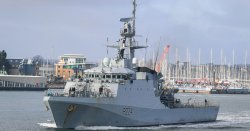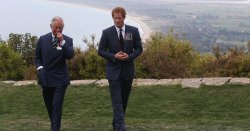Last month three Iranian men accused of plotting violent acts in the UK were found to have entered the country by illegal routes — including small boats and lorries — before claiming asylum.
Back in March, Polish PM Donald Tusk suspended asylum rights for those arriving from Belarus, saying the crisis was part of a deliberate hybrid warfare strategy driven by hostile states.
Italy’s defence minister Guido Crosetto even claimed the Wagner Group was helping to facilitate migration from North Africa into Europe as a “clear strategy of hybrid warfare”.
Yesterday PM Sir Keir Starmer attended the Nato summit in The Hague, where leaders agreed all member states would aim to spend five per cent of GDP on defence and security by 2035.
That includes 3.5 per cent on traditional forces and weaponry and 1.5 per cent on areas like energy, infrastructure and border protection.
How important are secure borders for Britain?
Security Minister Dan Jarvis said: “National security is the first duty of any government — and that means securing our borders.
“We are improving our ability to monitor and anticipate illegal migration flows at national and international levels, including investing in new state-of-the-art surveillance tech.
“Our Border Security Command is bringing together security operations at our borders.
“This means working closely with Europol, Frontex and EU member states to fight organised immigration crime.
“New counter-terror-style powers will tackle the gangs, and existing measures will make sure identity and criminal record checks are carried out on all who arrive by visa, clandestine entry or small boat — so that any potential threats can be immediately dealt with.”




















